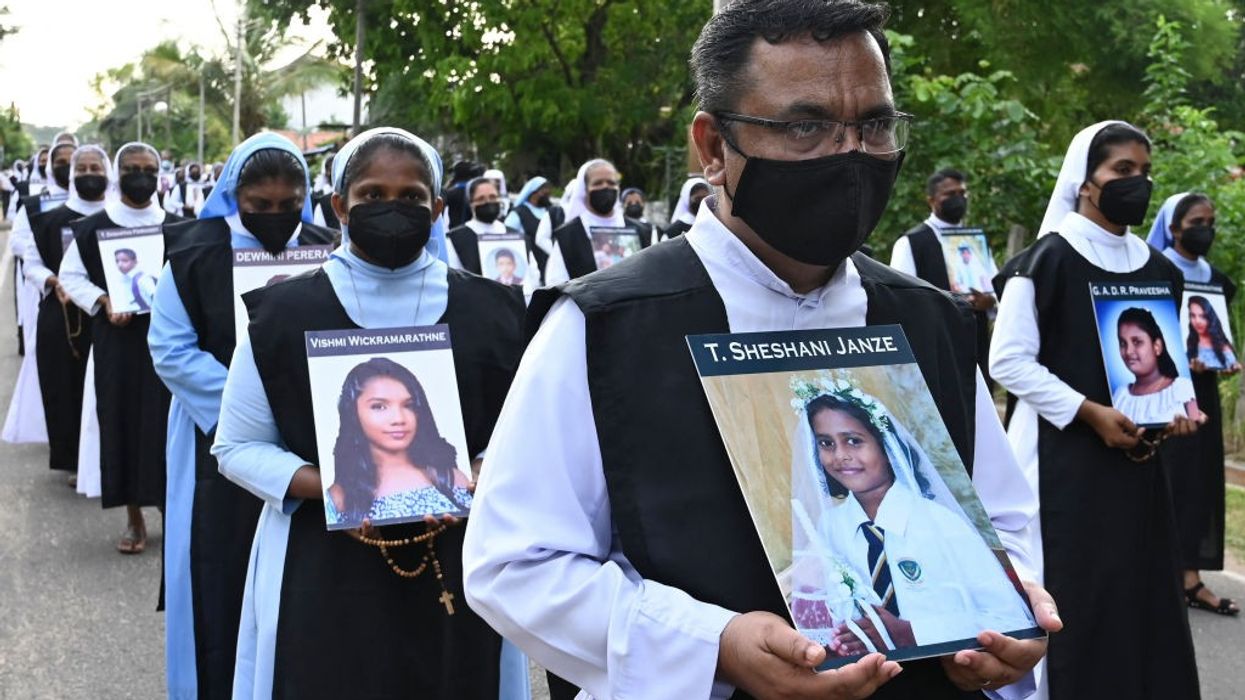THE head of Sri Lanka's Roman Catholic Church on Wednesday (21) accused the government of stalling investigations into Easter Sunday bombings two years ago that killed 279 people.
Nearly 200 people were arrested within days of the suicide attacks on hotels and churches by Islamist extremists, but no one has yet been charged.
Cardinal Malcolm Ranjith, who led commemorations on the second anniversary Wednesday, said he was "deeply saddened" by the lack of progress in the investigation.
"We have to stress that what is happening at the moment is an attitude of 'no care' where all factors are not properly investigated," the cardinal said at a commemorative service in Colombo.
He renewed his call for swift action against the perpetrators and said "political posturing and the need to safeguard alliances" was hindering the probe.
The cardinal has previously called for former president Maithripala Sirisena to be prosecuted for failing to prevent the attacks despite advance warnings.
An investigation ordered by Sirisena soon after the bombings found that he and his intelligence officials had precise information from India about the attack 17 days earlier, but failed to act.
Sirisena, who did not offer himself for re-election in November 2019 polls, is currently a legislator with the party of his successor Gotabaya Rajapaksa.
Although none of the 200 in custody have been indicted, 16 Muslim men among them were charged Tuesday in connection with desecrating Buddhist statues in December 2018.
The authorities have said that the destruction of the statues in Buddhist-majority Sri Lanka was the forerunner to the Easter Sunday attacks four months later.
A multi-religious remembrance service broadcast on television was led by Cardinal Ranjith at the St. Anthony's Church where 56 people perished in the bombings.
Forty-five foreign nationals also died in the largest single terror attack in the history of the country. The attack came 10 years after the end of Sri Lanka's 37-year Tamil separatist war.





